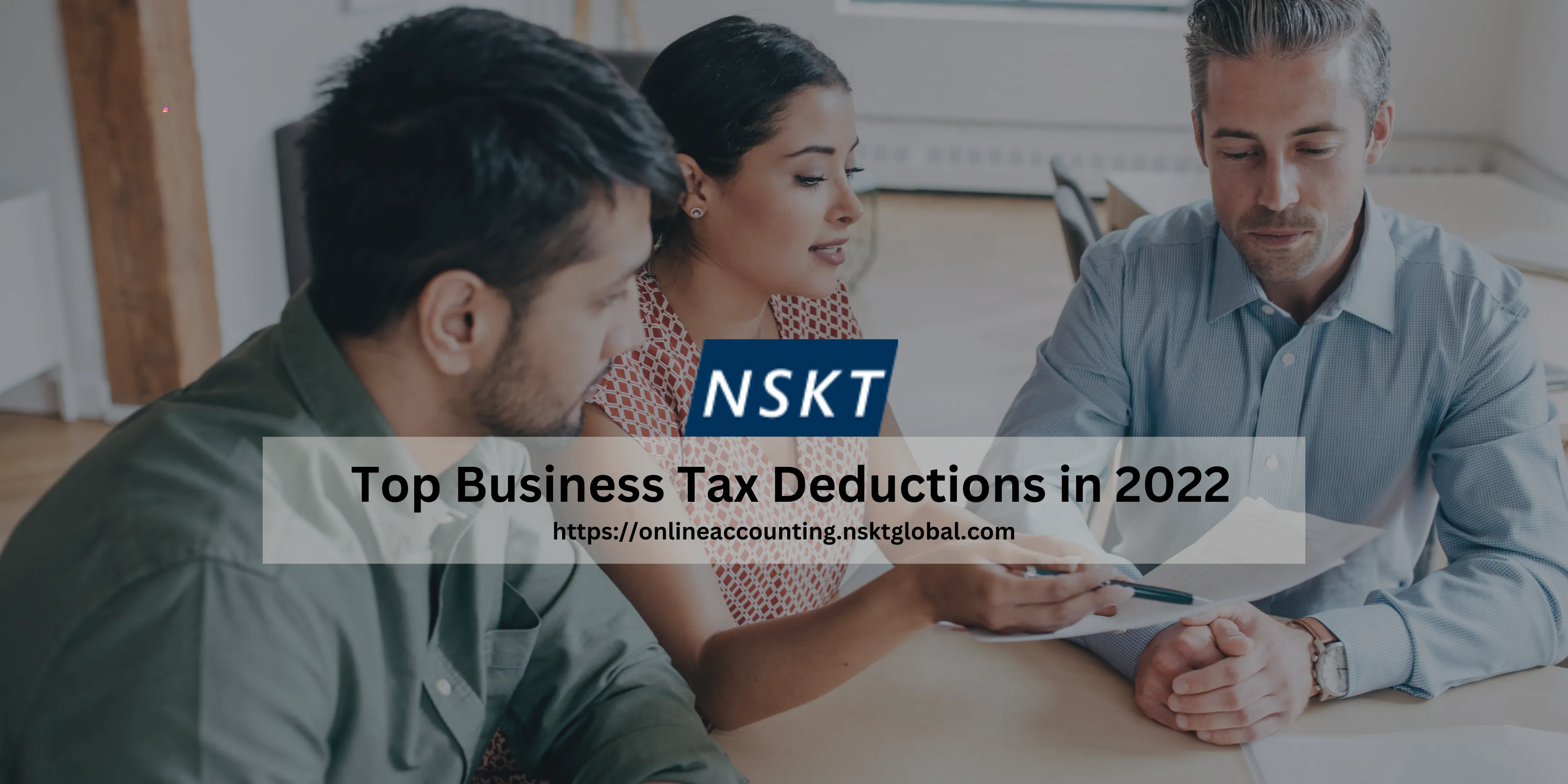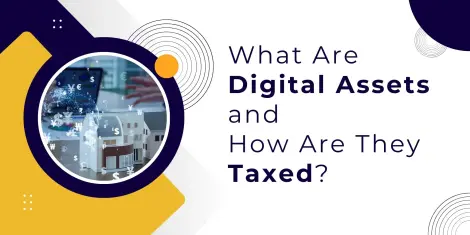Table of Contents
Small businesses usually function on a very tight budget, and saving on business tax services is one of the topmost priorities of small businesses worldwide, irrespective of their industry. Learning about all the possible business tax deductions and income tax savings made available by the IRS to support the growth of small businesses is crucial. The eligibility criteria for these deductions depend on the business category. The business can fall into categories such as S-Corp, LLC, and a sole proprietorship, among many others.
Let us recognize and understand the most prominent business tax deductions for 2022.
- Home-office deduction: If you work from home most of the time and have a dedicated office space, you can avail of this deduction. You can list this deduction on your Form 1040 if you utilize a specific part of your home exclusively to run your business. You can also claim associated expenses, including repairs, insurance, and utilities related to this office space. The portion of the house must be used exclusively and regularly for business purposes to avail of a home-office tax deduction.
- Real estate taxes for office/ business space: If you have a separate business property, that plays a crucial part in running the business, such as an office, cold storage, or inventory space, you can deduct the real estate taxes related to it. However, documents supporting the payment of these taxes are required.
- Cost of business meals: If you have had necessary business meetings with clients, employees, or vendors over a meal, these meals can be deducted. However, for the meal expenses to qualify as a deductible, the meal must have been conducted strictly for business purposes and nothing else.
- Cost of goods sold: If your small business manufactures products or resells products manufactured by other companies, there are several costs associated with the goods being sold, which can be listed as deductible on Form 1040. The cost of goods sold consists of expenses such as storage costs, the cost of the raw materials or finished products, and factory overhead, among many others. Some indirect costs related to the goods sold include rents, business taxes, handling charges, and processing costs.
- Capital expenses: Capital expenses refer to the money spent on capital assets. These assets take more than a year to complete utilization. Also referred to as CAPEX, these expenses include the cost of vehicles, technological equipment such as computers, manufacturing equipment, and buildings, among countless other assets. You can deduct a part of these costs over the years by recovering the amount spent on capital assets through depreciation, depletion, or amortization, as one cannot obtain a current deduction for such expenses.
- Operating expenses: Operating expenses, or OPEX, refer to the money spent on the small business to purchase fully consumed assets within a year. OPEX allows businesses to carry on day-to-day processes and is unavoidable. Some examples of OPEX include the money spent on office supplies and the money spent on paying employee wages.
- Business education expenses: Some small business accountants near me require special skills and training, which can only be obtained through paid seminars and classes. These costs can also be deducted as a business expense from the business's taxable income, which ultimately brings down the tax bills to a great extent.
- Business equipment and internet bills: If an internet connection is necessary for your business to function, the associated fees, such as the monthly subscription and installation fees, can also be listed as a deductible for the small business. Some mandatory equipment such as computers, furniture, and other essentials are also needed to set up a business. Their costs can also be deducted from the tax bill if the business can list out all these expenditures and produce receipts and documentation related to these purchases.
- Travel expenses: If you are traveling out of the city, you can list the cost of travel, food, and lodging as tax deductibles on Form 1040. Some travel expenses commonly listed as tax deductibles include hotel stays, airfare, meals, and car rentals necessary to move about. The IRS might ask one to produce the receipts for these expenses. Therefore, it is suggested that small businesses keep the receipts concerned with these expenses safe.
- Office supplies and phone expenses: The cost of stationery items required to ensure the smooth functioning of processes within the office can also be listed as business tax deductibles. These expenses include ink, pens, paper, toner, and phone expenses. If your business requires a dedicated phone, the phone's cost and associated charges are also referred to as business expenses, which can be listed as tax deductible.
- Employee benefit programs: A business can deduct the money spent on employee benefit programs. These benefit plans can include health insurance plans, education assistance, welfare benefit funds, etc. It is essential to notice that one cannot deduct the cost of life insurance coverage if the small business owner is a direct beneficiary.
- Costs of professional services availed: A small business can also list the cost of hiring a professional service, such as a lawyer or an accountant, as a business tax deductible. The cost incurred for legal advice or representation for matters related to the business can also be listed as tax-deductible.
- Bad debt incurred by the business: A debt that the business has provided to a party, which has been deemed as uncollectible, can be treated as tax-deductible for small businesses. Bad debts include money owed by vendors or customers which cannot be recovered. The deduction obtained to offset losses incurred due to bad debt must be considered carefully.
- Gifts provided to employees or clients: Small businesses often give employees and clients gifts to incentivize them to maintain loyalty to the business. Expenses such as employee perks, bonuses for holidays, and client gifts are also considered deductibles.
- Charitable contributions made by the business: The IRS has incentivized Taxpayers to indulge in Charitable contributions by deeming charitable donations to specific charities exempt from taxes business tax deductions. Businesses can provide money, goods, or services to these charities and deduct the cost of donated resources as a deductible.
Small business owners often need help with the amount of effort and time that goes into business tax planning. This keeps them from focusing on building their business and paying attention to matters directly affecting the revenues generated. Therefore, it is suggested that owners of small businesses reach out to providers of business tax services that are well-versed in effective tax-saving strategies. Having an in-house accountant or tax professional can be very expensive for businesses starting up or growing out of their initial phases. It is therefore suggested that businesses seek help from online business tax service providers such as NSKT Global. NSKT Global can help businesses save loads of tax money with the most efficient tax-saving strategies. Head over to the official website of NSKT Global to find out how our team can help your business save money on taxes.







